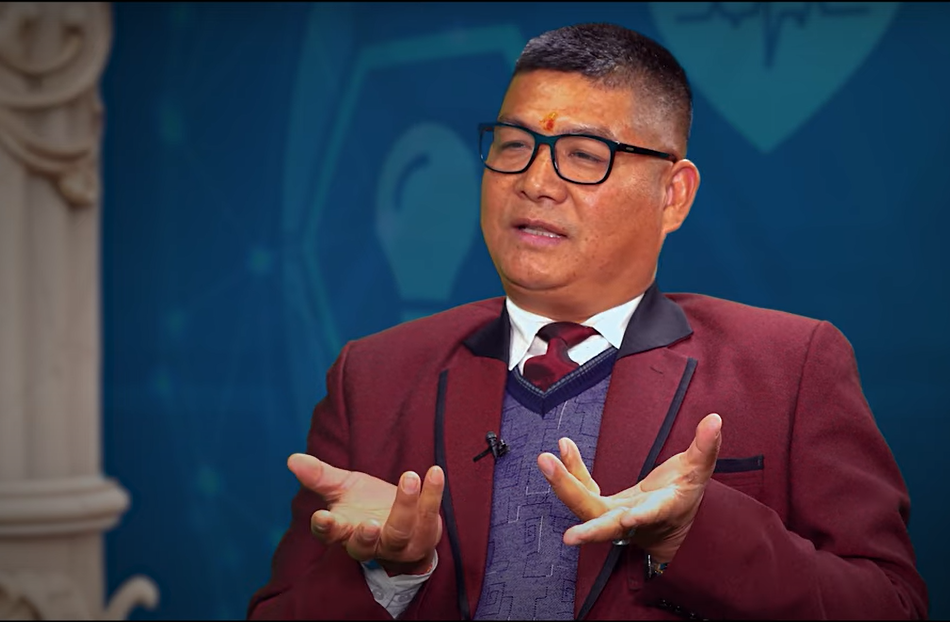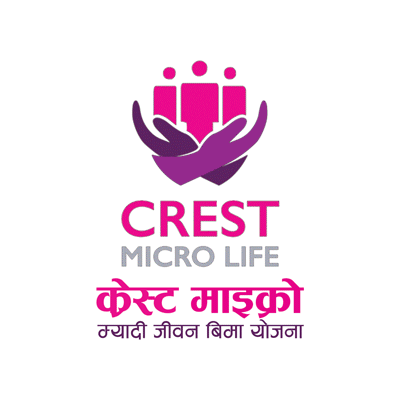Kathmandu. The Chief Executive Officer (CEO) of Nepal Reinsurance Company (Nepal Re) is Surendra Thapa. Thapa was appointed as the CEO of Nepal Reinsurance Company on Jestha 19. He assumed the post on Jestha 18. Before becoming the CEO of Nepal Reinsurance Company, Thapa was a former assistant administrator of the National Insurance Institute. He had previously served as DCEO at Ajod Insurance. Thapa has extensive experience working in the insurance sector. Summary of the conversation with the same CEO Thapa on ##Insurance Talk##:
##
## ##The first reinsurance company in Nepal, with significant shareholding by the Nepal government, has now also entered the competition. What makes it easy and what makes it difficult to operate with government investment?
##
## The fact that even competitors have entered shows that the reinsurance market is good in Nepal. It should be understood that way. It is craze. When it comes to government investment, let’s say that when entering into any new field, either the government has to take the risk or the private sector. The government’s proactiveness in advancing this reinsurance company is very good. Whether it is in the context of Nepal or in the external sector, there is a kind of attraction after the government’s investment. As soon as the government is mentioned, there is a kind of development, and the international market is believing that there is a kind of development. That is our strong point.
Due to government investment, some difficulties may arise while working. How much does that hurt?
It seems that we have not been able to explain it a little. In the past, it has been coming in the Public Private Partnership (PPP) model. Apart from this, if we look at the share model, 44 percent is the government’s investment. How to understand that is also difficult. If we look at only 44 percent, it is the whole. However, if we leave it and go to another, it is not the whole. However, the thing is that we had brought it to go to the PPP model. However, even now the practice is in the government model. To implement most of our policy decisions, we have to ask the Ministry of Finance. It seems that there is some difference in the mechanism model of the Ministry of Finance or its mechanism and our company. Because the perspective of looking at us and the perspective of looking at other organizations is the same. The nature of our company’s business is to expand business by reaching the international arena. In the process of expanding market access, we have a high-level visitor’s conversation and policy discussions. Even when it is approved by our board level and the insurance authority, we have to get further approval from the Ministry of Finance. After going to the Government of Nepal, we also could not explain that its process will be long. Which makes it feel that sometimes customers are less likely to take advantage of the opportunities created in the market.
The board chairman is also appointed by the government. All employees in the company are also appointed from the public service. After working hard, when they become a little more capable, someone else takes the employee. Is there a problem?
You have already said this before I say it. I don’t have to say much about it.
So, has the government also protected your business?
Yes. Protected. However, today’s business has gone from being safe to sharing. However, we should also thank the government for something. The government has made provisioning arrangements for debt and treaty. It has been made mandatory. We have adopted it. Similarly, only after we have identified our capabilities, especially in the case of non-life insurance business, when we say we cannot, can we send it to the international market. We can do non-life insurance reinsurance on top priority. Which is a very good thing. Similarly, life insurance reinsurance business cannot be sent abroad. Reinsurance is done through Nepal’s own reinsurance. Apart from DC, business is being done in this by linking it with the services and facilities of the business.
The previous leadership had to face criticism because you could not save the RSD/MD/ST business.
What it is like in the past has been saved. Even today, it is one of our products. The birth of Nepal Reinsurance Company is its byproduct. However, in the case of DSU, it must be said that it could not be saved at that time.
##Your employees also live on government scale salaries. Perhaps yours is the same. Rather, since it is better on the outside, the growth of the company will be like this?
## The main thing is how to look at it. It is easier if you look at it from two angles. The situation of the one who has done more growth and development individually is to jump or transfer. That is why we are also facing difficulties in many things.
What are you doing to raise capital?
On our behalf, the board has taken a decision and we have sent it to the relevant bodies. Since the final approval will be from the Government of Nepal, we have sent it to the Ministry of Finance for approval. One level of general homework has been done. In this regard, we are also preparing the DDA report, the final report has not yet come. We expect that after that report comes, the government will give us the green signal to move forward.
You are running a company that can make Nepal known to the world. The country rating has also come. What do you plan to do now?
We understand that this will benefit us. Because we are in the final stage of our company’s rating. They have now said that we will give the final report on the rating by January. In this context, the country rating was done. We have also explained that Nepal has also taken the country rating and that you, the agency, will recognize us and that it will be easy to do.
What are your expectations in the rating?
Many people know this. What is the quality of our company? What is that of neighboring countries? And what are the standards of our competitors? It will probably come according to our expectations.
You have to go to the world market, work hard, convince and bring business. The way you have been working now, has it become like being tied down everywhere? Is it like a soldier being sent to fight a war with his hands and feet tied?
What we have realized is that in some places, in order to deal with business, you have to go to the board level and higher management level. During such visits at the high level or board level, the approval of the ministry is required. In some cases, when you go to the ministry to get approval, you have to look at the purpose, benefits, and everything else. Because of that procedural reason, sometimes our visits have also gone up and down. That is why we feel that it is a bit difficult here.
Are you lobbying now to loosen it?
That is essential. We have also said in various bodies that the nature of insurance and reinsurance is different. While insurance is limited to the local market, reinsurance must reach the international market, and it is not possible to stay in the local market alone. There is a problem in going to the international market. For example, if a competing company can go global with one decision, in our case, it is a bit more complicated and time-consuming if the higher body has to complete the process rather than doing it immediately.
How many countries are you currently bringing in business from?
Now, when we talk about size, business is coming from 14-15 countries. We are still working on renewing it. We will renew it from January. The rating is making it difficult for us to analyze the risk and capacity to reach the international market. If we look at the statistics today, only 8-10 percent of the internship businesses are running.
In the meantime, we used to say, ‘We have reached 32-33 countries, we have brought business there’. But, that’s garbage!
Let’s not understand it that way. When starting, you have to put everything in the basket. Because you have to make an entry. After making an entry, we have to understand our capabilities, risk analysis, etc. While managing those things, we have also looked at the issue of reducing risk.
If we assume that that 8 percent of the business is brought from abroad, what does its contribution to the profit sector on your balance sheet look like?
Profit is the amount of total income minus all expenses. Currently, the situation is the same for both domestic and foreign investors. The main thing is income. Income is generated in Nepal from hydropower projects. Everyone has seen the current situation of hydropower. Similarly, we are also studying the level of business that comes from abroad. As you said, the contribution of 8 percent is somewhere in our profit.
Isn’t that a loss-making business?
On average, this is not the case.
Which countries do you see a lot of business coming from?
Even if you look at the current situation, most of them are from countries such as Bhutan, India, and England.
You were raising the issue of hydro. There is a lot of sadness in the hydro business. Why has it not been resolved?
Now risk analysis work is becoming challenging globally. Now, on the eve of Dashain, we have to face a major disaster, floods and landslides. It is having an impact.
Do you still have a premium dispute? You are saying that the premium is not enough. Producers are saying that this premium is too high.
This is ongoing. Our regulatory body, the Insurance Authority, is actively working to resolve this. We need to move forward with an agreement between both parties.
How do you plan to reach this agreement?
The agreement should be practical. Because the reason why the issue of tariffs arose is because we could not find out where our weaknesses are technically.























